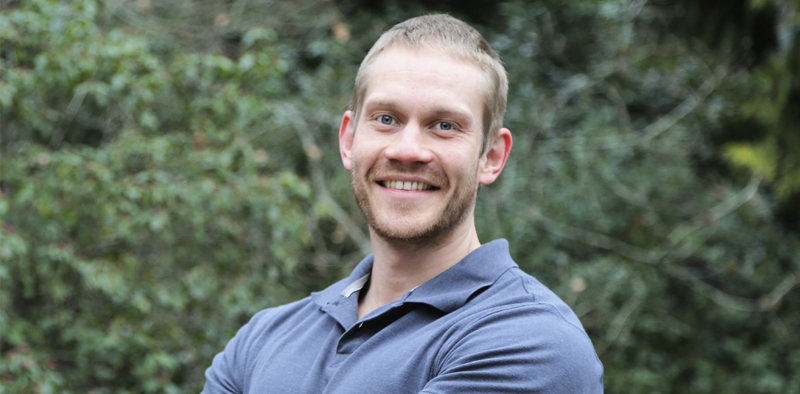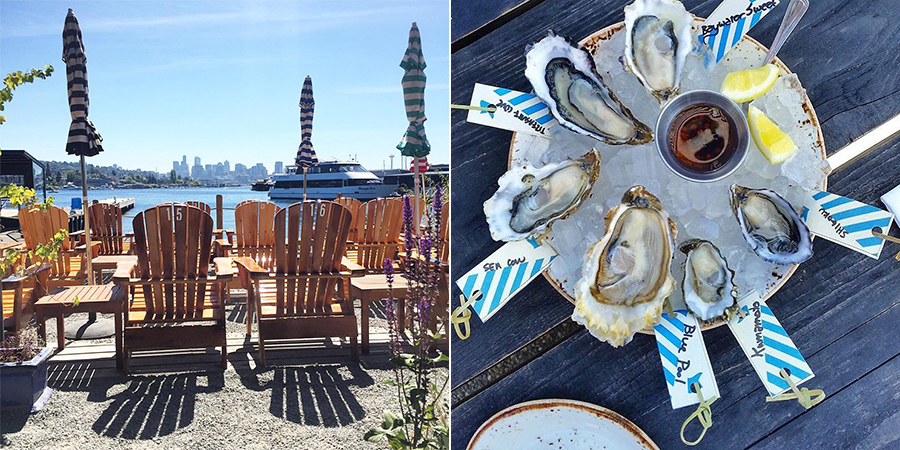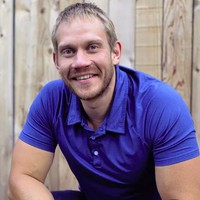
We all talk a good game about how to eat, what to eat, and the importance of preparing our own food from quality ingredients. The truth is that everyone faces the same dilemmas from time to time. Whether it's travel, working late, business lunches, social outings, or simply not being interested in cooking, there are many reasons that eating that home cooked meal may not always be possible.
I've decided to pose a series of questions to our members on a weekly basis on what gets them through these situations. You might be surprised at some of the answers and others might be exactly what you expected — either way, I'm hopeful that this will help you navigate your way through the myriad of awkward, inconvenient, or simply lazy situations you find yourself in.
Dr. Tommy Wood from Seattle, Washington, USA
CA: Do you put much thought into where you eat out? Or do you simply go anywhere and try to make do with what's on the menu?
TW: I enjoy doing restaurant research, and usually try to balance good reviews with value for money. However, my girlfriend and I will often end up going for a good burger place. Buns optional.
CA: Most memorable restaurant meal in Seattle?
TW: Westward on the Water in Wallingford. A little pricey, but it was a special occasion and the oysters and view over the water (and cocktails) were amazing.

CA: Most memorable restaurant meal outside of Seattle?
TW: One of my absolute favourite meals comes from Fjöruborðið in Iceland. It's on the water (again), about 45 minutes South-East of Reykjavík. You pretty much only go there for the langoustine tails ("humar"), which are served by the bucket load in the middle of the table, covered in garlic butter (grass-fed, of course). Everybody just dives in - it's a great place to go with friends and family!

CA: For people with special diets, how do you suggest they talk with restaurant staff in order to get what they need?
TW: Most places are getting much better at dealing with special diets. However, it's always easier to find somewhere that already has appropriate dishes rather than turning up and being surprised that all the sauces and soups have gluten and dairy in them. I would generally recommend doing some research ahead of time and then asking the server for options that fit your needs. Call ahead if unsure, and remember that restaurant staff are usually overworked and underpaid, so make their job easier if you can. This will also make sure you don't accidentally get some food that you can't eat!
CA: Do you prepare an emergency meal when you travel? If so, what do you include?
TW: I used to get really worried about always having food with me, but that's changed in the last couple of years. For me (and for most people), missing a meal shouldn't be a big deal. I therefore often find myself fasting when travelling rather than eating food that I'd normally try to avoid.
CA: Your favorite quick meal to prepare at home?
TW: I love eggs, so they tend to feature when I'm short on time. There's almost always some leftover fish, meat, soup, rice, veggies, or sweet potatoes in the fridge, and any of those are great with a fried egg on top!
CA: In terms of food, what is your guilty pleasure?
TW: I would normally say ice cream, but having recently started my first full holiday season in the US, I'll have to say pecan pie. If I'm going to indulge, though, I always make sure that I just enjoy what I'm eating and don't feel guilty about it!
 I am a Research faculty at the University of Washington (UW) in the Department of Pediatrics. My research focuses on ways to increase resilience of, and treat injury of, the developing brain. I have a bachelor's degree in biochemistry from the University of Cambridge, a medical degree from the University of Oxford, and a PhD in physiology and neuroscience from the University of Oslo. In addition to my role as a faculty at UW, I serve as President of Physicians for Ancestral Health, and on the scientific advisory board of Hintsa Performance. Alongside my career in medicine and research, I have invested time in developing easily-accessible methods with which to track human health, performance, and longevity. I have published and spoken on multiple topics surrounding functional and ancestral approaches to health, including examining the root causes of multiple sclerosis and insulin resistance. I also use my experiences in coaching and competing in rowing, CrossFit, powerlifting, and ultra-endurance racing to inform my day-to-day interaction with clients looking to achieve long-term health and performance.
I am a Research faculty at the University of Washington (UW) in the Department of Pediatrics. My research focuses on ways to increase resilience of, and treat injury of, the developing brain. I have a bachelor's degree in biochemistry from the University of Cambridge, a medical degree from the University of Oxford, and a PhD in physiology and neuroscience from the University of Oslo. In addition to my role as a faculty at UW, I serve as President of Physicians for Ancestral Health, and on the scientific advisory board of Hintsa Performance. Alongside my career in medicine and research, I have invested time in developing easily-accessible methods with which to track human health, performance, and longevity. I have published and spoken on multiple topics surrounding functional and ancestral approaches to health, including examining the root causes of multiple sclerosis and insulin resistance. I also use my experiences in coaching and competing in rowing, CrossFit, powerlifting, and ultra-endurance racing to inform my day-to-day interaction with clients looking to achieve long-term health and performance.
Read More Q&A's from the "What & Where They Eat" Series


